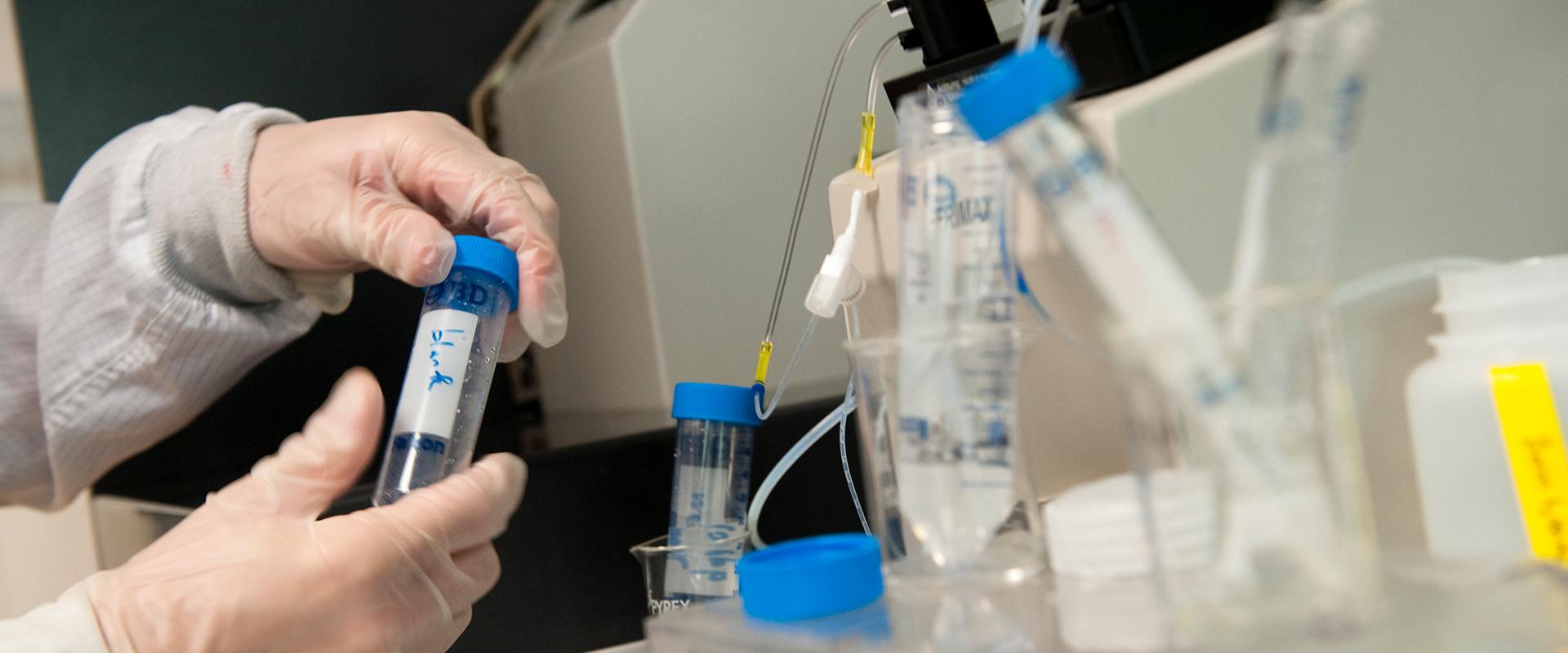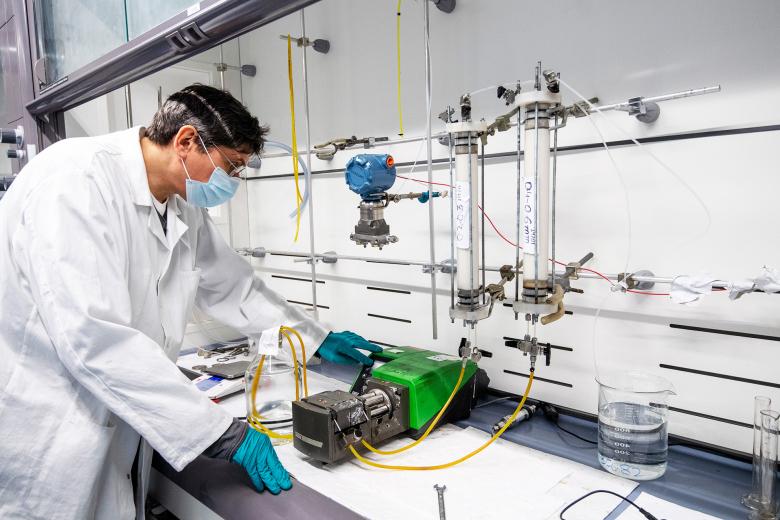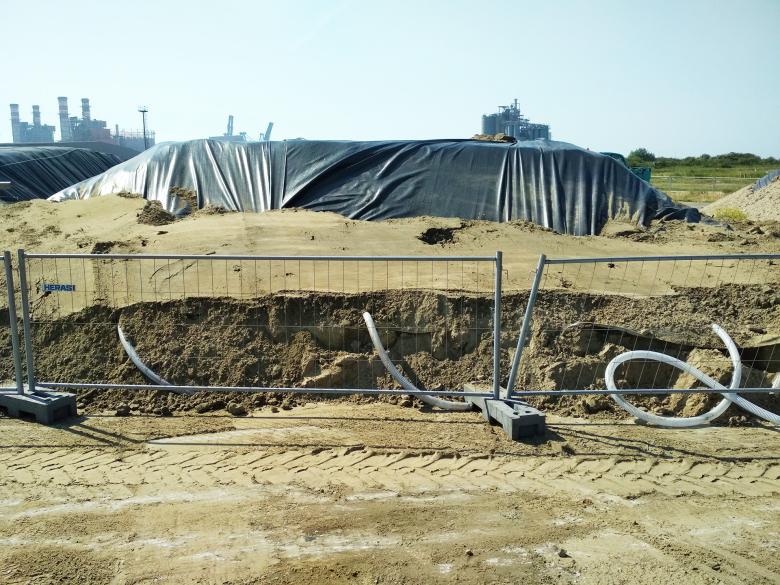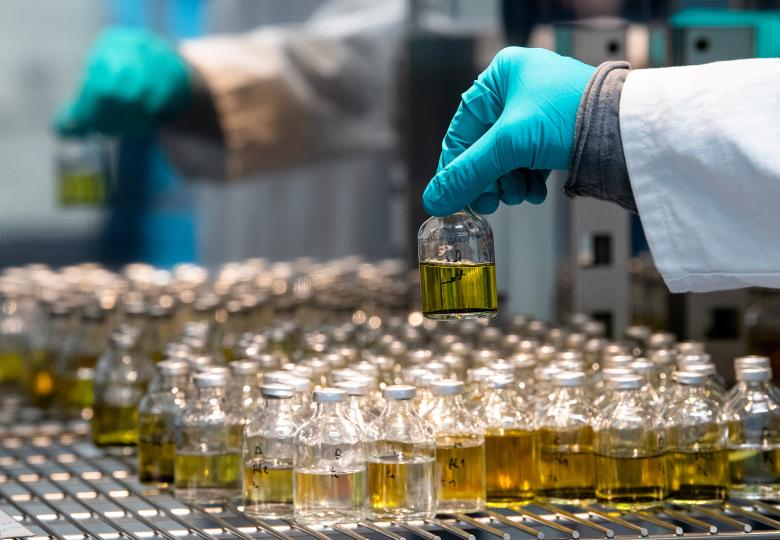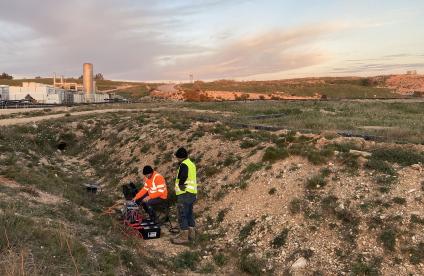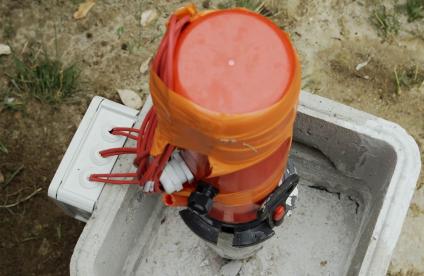PFASs are chemicals, specifically perfluoroalkyl and polyfluoroalkyl, which are commonly used in domestic and industrial settings. PFASs can be found in thousands of applications: stain-proof and waterproof coatings, oil-resistant coatings (for food packaging paper and cardboard), and compounds for fire-fighting foams and floor coatings. They have adverse effects on human health and the environment. In addition, as PFASs are particularly persistent over time, extensive site remediation using appropriate techniques will be required.
A major issue for groundwater pollution
These PFASs are among the pollutants of emerging interest. They are also known as refractory pollutants. This is because they do not degrade after they are used or released into the environment, due to their high chemical stability: in addition to their properties described above, they are only subject to slight alterations in air, water or sunlight. PFASs can therefore be transported far from a source of emission, and thus imperil the environment, by contaminating groundwater or surface water and accumulating in living organisms. Consequently, they are recognised as endocrine disruptors and even as potential human carcinogens. Work on their effects has already been done in animals.
However, PFASs are still relatively unknown: the techniques for their economically acceptable decontamination are not very advanced. This is a big issue, with a significant societal risk, involving health risks linked to toxic compounds in groundwater that will require substantial industrial cleaning-up.
Cleaning up sites and soils contaminated by PFASs
As this is becoming a major issue for many industrialists and the authorities, with its health and environmental consequences, BRGM, together with Colas Environnement, is working on the depollution of sites and soils polluted with PFASs, which is generally technically complex and costly. This is the purpose of the Concerto project, launched in the spring of 2020 and completed at the end of December 2020. This project has two parts: one concerning certain petroleum hydrocarbons that degrade with difficulty, and one for the emerging PFAS pollutants. With regard to hydrocarbons, a research phase on the petroleum products present in the soil, which account for 40% of soil pollution, was carried out at the Dunkerque refinery and in laboratory conditions with surfactants and biosurfactants (using an adapted injection technique). The process has improved conventional treatments of the compounds by more than 65%.
Good PFAS purification yields in the laboratory
For PFASs, with which we are concerned here, research was conducted in the laboratory at the BRGM scientific and technical centre in Orléans. A chemical decontamination process has been developed for some of these PFASs. Specifically, tests were carried out with a reducing agent, a catalyst and a diffusion matrix, which showed that it was possible to reduce PFAS concentrations in groundwater. The effectiveness of different reducing agents was assessed by screening them. An analytical method was developed for 18 perfluorinated compounds found in the water. It enabled analyses of samples from the experiments to be carried out at low concentrations: from 20 to 100 ng/l, depending on the compounds.
The results of these experiments showed that good purification yields were obtained: a reduction of up to 70% in the concentration of certain PFASs in the groundwater!
A launch pad for the Green Deal PROMISCES project
These initial results will be developed, again in partnership with Colas Environnement, as part of the European Green Deal PROMISCES project, which aims to promote the “zero pollution” strategy for water, soil and sediments by 2025 in order to enable the application of circular economy principles. Fields of study: the origin, pathway and fate of pollutants that are easily spread and very persistent in the environment.
Of strategic interest to BRGM, PROMISCES is its first experimental research project of this scale on PFASs, and will enable BRGM to display its expertise over the next three years.

